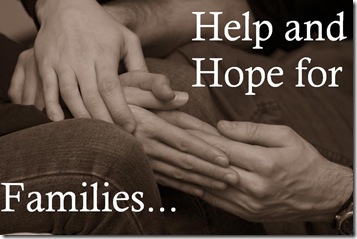Goals provide direction in your life and nurture your motivation
1. The purpose toward which an endeavor is directed.
2. The specific target towards which is an objective
3. An objective or desired outcome
DEFINE YOUR GOALS
Develop a written plan of your purpose in life. If an individual has no purpose in life they will lack the significance of motivation and when they lack motivation hopelessness is the result. When God created us, he created us with purpose, destiny, significance, and a sense of belonging. Then why do I feel empty, like there is a huge void that I am attempting to fill with other things, but God. This is because we were created to belong to God. We also were created to have a free volition or will, we have chosen to walk in independence from our source of life. Living naturally instead of spiritually is a choice. Independence comes from self-sufficiency and self- reliance. Our source thereby becomes our own self instead of God. This is what I Call the God shaped soul in our soul.
Joshua a five-point strategy
God gave Joshua a five-point strategy
1. Be clear in your direction.
In the first four verses of Joshua 1, God specifically outlines when and where Joshua is going. He knew exactly what God wanted him to do. If you’re going to be a leader that God can use, you must first be clear in your direction. We all need a goal, a dream. But those goals must be clear and specific. Nothing becomes dynamic until it becomes specific. And the more specific you are in your direction, the more you’ll find a magnetic pull that’ll take you along.
2. Be confident in your desires.
Once you know the direction that God wants you to take, you must have the confidence to move ahead. You can’t doubt what God’s called you to do. Doubt is the opposite of faith. The Bible says, “Whatever is not of faith is sin.”
Once you’ve set your goal the devil will get you to start questioning it. Is this really God’s will? What if I’m wrong? Do I really deserve this? Am I just being selfish or prideful?
Evidently this was a real problem for Joshua. He lacked confidence. He felt inadequate in his leadership. Sound familiar? I’ve identified with Joshua many times. God had to keep giving Joshua a pep talk. Four times in Joshua 1, God says, “Be determined and confident.”
Why? It isn’t the obstacles that keep you in the desert. It’s fear. Fear keeps you from being all that God wants you to be. It’s fear that keeps your church from growing how God wants it to grow. You must be confident in your desires.
3. Be committed to your decisions.
Once you’ve started, don’t look back. Joshua 1:9 says “Do not be discouraged for the Lord your God will be with you wherever you go.” God says stick with it. To be a success in life, you must outlast your critics. An oak tree is a little nut that refused to give its ground. Commitment is a key to accomplishment. If you don’t have commitment to your ministry, you’ll never finish anything.
What are you committed to? What are you willing to die for? Many people in your church are afraid to commit to anything. They begin one job and when it gets tough, they switch to something else.
When high achievers make a decision, they die by it. You can’t just jump across a canyon with several baby steps. You have to commit yourself to your goal. If you’re going to cross a canyon, you’ve got to go for it with gusto. It won’t work until you commit to making it work.
4. Be corrected by your defeats.
1. In chapter 1, verse 7, God tells Joshua, “Be strong and courageous. Be careful to obey all the law. Don’t turn from it to the right or to the left that you may be successful wherever you go.” He tells Joshua not to get sidetracked. When you have a failure, get back on track. Let God’s Word help you reorganize your ministry and your priorities. Mistakes are a part of life. You’re not perfect. The pencil eraser industry was built on your mistakes. If there weren’t such things as mistakes, we wouldn’t have any need for erasers.
The difference between successful and non-successful people is not that successful people don’t fail. They do. It’s just that successful people learn from their failures. Corrections after defeats are the key to the future. Thomas Edison once said, “Don’t call it a failure; call it an education.” At Saddleback, our staff is highly educated! We’ve done more things that didn’t work than did. We’re not afraid to admit it when we’ve made a mistake and to learn from it. The road to success is paved with failure. But we’ve learned from those failures.
Joshua did too. Remember the story of Ai, the little dinky town that the Israelites came upon after their great victory at Jericho. They’d just taken on the greatest, most fortified city in the land (Jericho) and God had given a tremendous victory. They were getting a little confident and cocky. Then they began to presume upon God’s grace. When they had to take the little city of Ai, Joshua said, “Go out with a small battalion of troops.” They went out and were absolutely wiped out. When the news came back to Joshua, he threw himself onto the ground and prayed. He asked God what happened.
God tells him to get up, dust himself off, and get the sin out of the camp. Don’t just pray – do something. They later discovered that Achan had stolen three things even though God had said not to take plunder. Because he hid those things, his sin was causing the entire camp to suffer.
But Joshua had to discover the problem and take appropriate action. He learned by his defeats.
5. Be conscious of God’s dependability.
God promises enormous benefits in his Word as we trust him and follow him. Joshua 1 is full of God’s promises. He specifically promises Joshua four things:
a. Power: In verse 5 God says, “No one will be able to stand up against you all the days of your life. As I was with Moses so I will be with you. I will never leave you or forsake you.” God tells Joshua to trust him and he’ll provide all of the power he could ever need.
b. Protection: He tells Joshua that nothing can harm him. In verse 5 he says, “I will never leave you or forsake you.” He’ll be with him always and protect him.
c. Prosperity: God says in verse 8 “Don’t let the book of the law depart from your mouth. Meditate on it day and night. Be careful to obey everything written in it. Then you’ll be prosperous and successful.” Prosperity is being everything God wants you to be, having God’s blessing your life, and using the talents he has given you. God guarantees that you’ll have more than you need if you trust in him.
d. Presence: That’s the best promise of all. In Joshua 1:9 God says, “I will be with you wherever you go.” Many times I’ve felt lonely in ministry, but God always gives me a new sense of his presence when I trust him.
Quotes on Goals
George Shinn: Goals Quotes
There is no such thing as a self-made man. You will reach your goals only with the help of others.
Scott Reed: Goals Quotes
This one step - choosing a goal and sticking to it - changes everything.
Orison Swett Marden: Goals Quotes
We advance on our journey only when we face our goal, when we are confident and believe we are going to win out.
Maxwell Maltz: Goals Quotes
We are built to conquer environment, solve problems, achieve goals, and we find no real satisfaction or happiness in life without obstacles to conquer and goals to achieve.
Henry David Thoreau: Goals Quotes
We must walk consciously only part way toward our goal and then leap in the dark to our success.
Zig Ziglar: Goals Quotes
What you get by achieving your goals is not as important as what you become by achieving your goals.
Nido Qubein: Goals Quotes
When a goal matters enough to a person, that person will find a way to accomplish what at first seemed impossible.
Napoleon Hill: Goals Quotes
When defeat comes, accept it as a signal that your plans are not sound, rebuild those plans, and set sail once more toward your coveted goal.
Greg Anderson: Goals Quotes
When we are motivated by goals that have deep meaning, by dreams that need completion, by pure love that needs expressing -- then we truly live life.
Denis Waitley: Goals Quotes
When you are in the valley, keep your goal firmly in view and you will get the renewed energy to continue the climb.
Les Brown: Goals: Motivation Quotes
You are never too old to set another goal or to dream a new dream.
Edgar A. Guest: Goals: Motivation Quotes
You are the person who has to decide. Whether you'll do it or toss it aside; you are the person who makes up your mind. Whether you'll lead or will linger behind. Whether you'll try for the goal that's afar. Or just be contented to stay where you are.
Les Brown: Goals: Motivation Quotes
You cannot expect to achieve new goals or move beyond your present circumstances unless you change.
Mark Victor Hansen: Goals: Motivation Quotes
You control your future, your destiny. What you think about comes about. By recording your dreams and goals on paper, you set in motion the process of becoming the person you most want to be. Put your future in good hands - your own.
Tracy Brinkmann: Goals: Motivation Quotes
You must have an aim, a vision, a goal. For the man sailing through life with no destination or "port-of- call', every wind is the wrong wind.
Les Brown: Goals: Motivation Quotes
Your goals are the road maps that guide you and show you what is possible for your life.
Ralph Marston: Goals: Motivation Quotes
Your goals, minus your doubts, equal your reality.
Bo Jackson: Quotes about Goals
Set your goals high, and don't stop till you get there.
Tom Landry: Quotes about Goals
Setting a goal is not the main thing. It is deciding how you will go about achieving it and staying with that plan.
Herodotus: Quotes about Goals
Some men give up their designs when they have almost reached the goal; while others, on the contrary, obtain a victory by exerting, at the last moment, more vigorous efforts than ever before.
Paul J. Meyer: Quotes about Goals
Success is the progressive realization of predetermined, worthwhile goals.
Mack R. Douglas: Quotes about Goals
The achievement of your goal is assured the moment you commit yourself to it.
Brian Tracy: Quotes about Goals
The most important key to achieving great success is to decide upon your goal and launch, get started, take action, move.
Francie Larrieu Smith: Quotes about Goals
The most important thing about motivation is goal setting. You should always have a goal.
Cecil B. De Mille: Quotes about Goals
The person who makes a success of living is the one who sees his goal steadily and aims for it unswervingly. That is dedication.
Denis Waitley: Quotes about Goals
The secret to productive goal setting is in establishing clearly defined goals, writing them down and then focusing on them several times a day with words, pictures and emotions as if we've already achieved them.
Edgar A. Guest: Quotes about Goals
The timid and fearful first failures dismay/ but the stout heart stays trying by night and by day/ He values his failures as lessons that teach/ The one way to get to the goal he would reach.
Richard Bach: Quotes on Goals
Here is a test to find out whether your mission in life is complete. If you're alive, it isn't.
Jim Valvano: Quotes on Goals
How do you go from where you are to where you want to be? I think you have to have an enthusiasm for life. You have to have a dream, a goal and you have to be willing to work for it.
Og Mandino: Quotes on Goals
I am here for a purpose and that purpose is to grow into a mountain, not to shrink to a grain of sand. Henceforth will I apply all my efforts to become the highest mountain of all and I will strain my potential until it cries for mercy.
Robert Townsend: Quotes on Goals
If you shoot for the stars and hit the moon, it's ok. But you've got to shoot for something. A lot of people don't even shoot.
Alberto Salazar: Quotes on Goals
If you want to achieve a high goal, you're going to have to take some chances.
Mary Lou Retton: Quotes on Goals
I'm very determined and stubborn. There's a desire in me that makes me want to do more and more, and to do it right. Each one of us has a fire in our heart for something. It's our goal in life to find it and to keep it.
Norman Vincent Peale: Quotes on Goals
It takes struggle, a goal and enthusiasm to make a champion.
Mary O'Connor: Quotes on Goals
It's not so much how busy you are, but why you are busy. The bee is praised. The mosquito is swatted.
Unknown Author: Quotes on Goals
Knowing your destination is half the journey.
Vince Lombardi: Quotes on Goals
Leaders aren't born, they are made. And they are made just like anything else, through hard work. And that's the price we'll have to pay to achieve that goal, or any goal.





![unchurched[1]](http://lh3.ggpht.com/youndagultcrisishotline/SD_tB1QITXI/AAAAAAAABCo/_XduZ_hXZkY/unchurched%5B1%5D_thumb%5B1%5D.jpg)

















